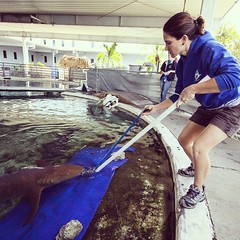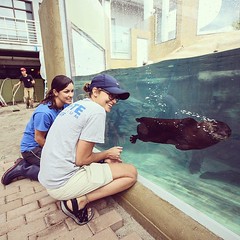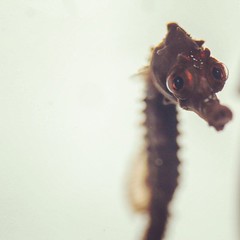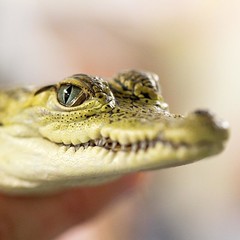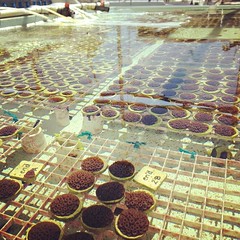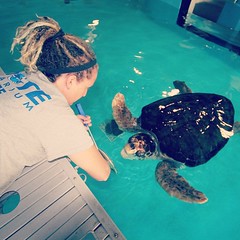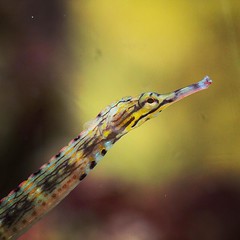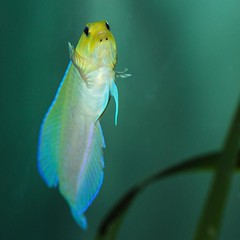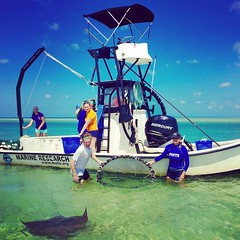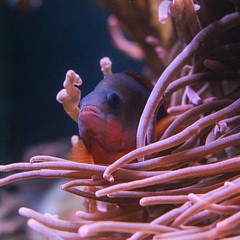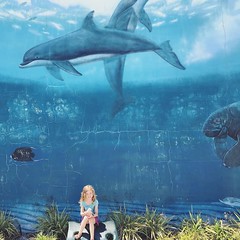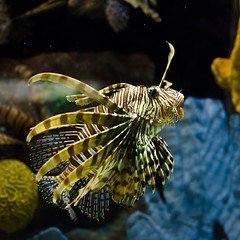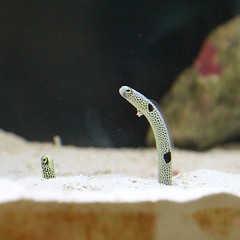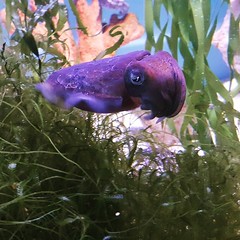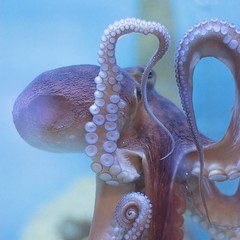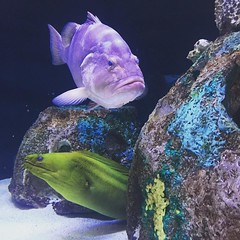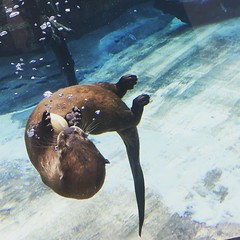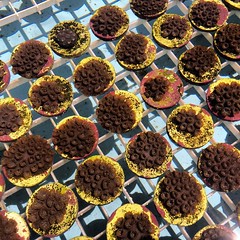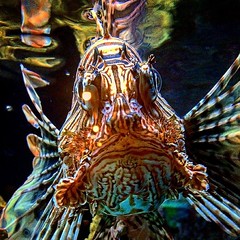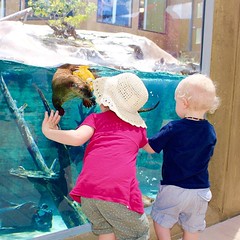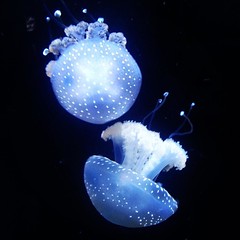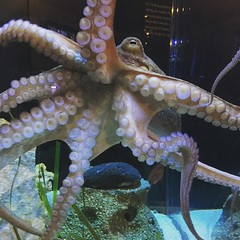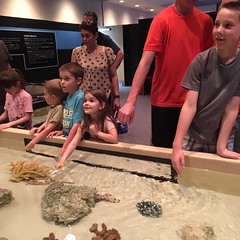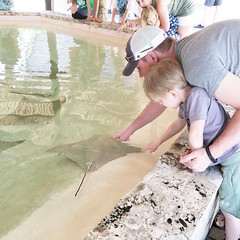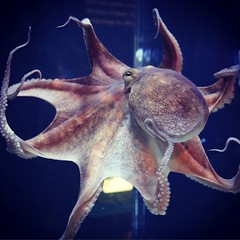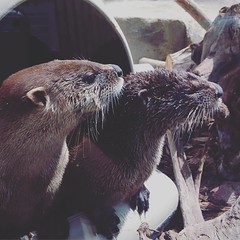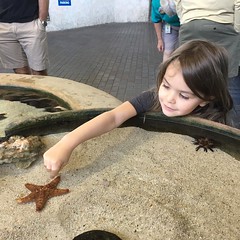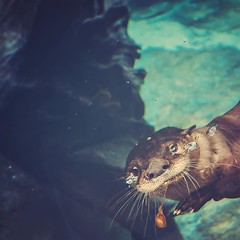1600 Ken Thompson Parkway
Sarasota, FL 34236
Ph: (941) 388-4441
Hours: 10AM - 5PM
A 501(c)3 nonprofit organization.
Salem
Atlantic bottlenose dolphin (Tursiops truncatus)
| Age Class | Adult |
| Gender | Female |
| Date Stranded | October 31, 2018 |
| Location of Stranding | St. Petersburg, Florida |
| Date of Arrival | October 31, 2018 |
| Number of Days of Care | 90 days |
Final Disposition
Salem was released into the Gulf of Mexico on Jan. 28, 2019. Read more about the release here.
Learn more about Salem's journey here:
Dr. Randall Wells, Director of Chicago Zoological Society's Sarasota Dolphin Research Program, provides on update on Salem's location on Feb. 4, 2019:
Tag and tracking services provided by NOAA's John H. Prescott Marine Mammal Rescue Assistance Grant #*NA15NMF4390026
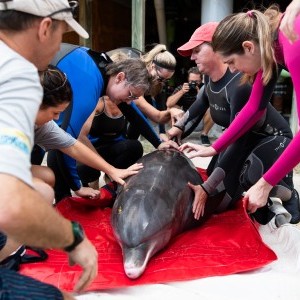
Oct. 31 - Nov. 1, 2018
- On the afternoon of Oct. 31, 2018, a female, bottlenose dolphin stranded off the north Sunshine Skyway Bridge fishing pier in St. Petersburg, Florida, and a boater reported the animal to the Florida Fish & Wildlife Conservation Commission (FWC). FWC transported the animal to Jane's Refuge: The Hospital for Dolphins and Whales at Mote Marine Laboratory, arriving just after 5 p.m. that evening.
- The adult female dolphin was nicknamed "Salem" because she stranded on Halloween.
- During transport to Mote, Salem was arching her back, a sign of stress often seen in critical-condition animals, and she was breathing quickly and regurgitating.
- Salem arrived with shark bites and appeared potentially thin. However, her cause of stranding is not known.
- Mote caregivers collected blood samples for initial diagnostics on Oct. 31, and a sample will be subsequently used to check for potential exposure to toxins from the Florida red tide (Karenia brevis) bloom that continues along southwest Florida. Salem received fluids the night of Oct. 31 and swam on her own that night and into the morning of Nov. 1, but she remains in critical condition. Mote caregivers conducted a more detailed medical exam on Nov. 1.
- On the afternoon of Nov. 1, Mote's Stranding Investigations Program Manager noted that Salem is about 8 feet long, weighs about 325 pounds, and is alert and responsive to movements around her but remains in critical condition, and her condition could change at any time. As of that afternoon, Salem was being treated for infection and parasites, receiving 'round-the-clock care, and continued swimming on her own with one caregiver present in her medical pool.
Nov. 2
- Mote caregivers continued diagnostic tests with Salem, including a full ultrasound and veterinary checkup (for example: examining her visually, listening to her lungs, collecting samples of blood, feces and blowhole mucus) today, Nov. 2.
- She appears to have some degree of pneumonia and gastritis (stomach inflammation), and she appears to be an older female, as evidenced by her worn teeth.
- Salem’s condition remains critical and her 24-hour care continues, but we were pleased that Salem was able and willing to eat some fish today.
Nov. 4-5
- On Sunday, Nov. 4, Salem had an "off" day and needed a lot of assitance from staff and volunteers.
- As of Monday, Nov. 5, she seems to have moved through that episode and is eating again, as of Monday morning.
Nov. 6
- Salem is feeding on her own but is still battling an infection. Mote's hospital team is grateful to those who have wished her well!
Nov. 7
- Salem's prognosis is still very guarded (subject to change at any time), but we're glad to say that she's been swimming in slightly deeper water and eating all food offered.
Nov. 12
- Salem continues to swim on her own in deeper water and eat all fish offered. She is interacting with environmental enrichment devices (EEDs), specially designed "toys" that provide physical and mental stimulation.
- Bloodwork suggests she is making some progress on antibiotics but signs of infection are still present.
- Her prognosis remains guarded and could change at any time.
Nov. 19
-
Salem has shown some signs of improvement since she arrived on Oct. 31. She has been swimming on her own, eating all fish offered, and has shown some improvement in her bloodwork, thanks to excellent care from Mote's team. She is also interacting with environmental enrichment devices, which are special toys designed to provide healthy mental and physical stimulation.
-
However, Salem is not “out of the woods.” Caregivers continue working to help the dolphin gain weight and fight an infection. An ultrasound revealed a concerning area in her heart, which caregivers will continue to monitor and investigate. Meanwhile, test results continue to rule out possible causes of her stranding. So far, test results suggest that her stranding was NOT likely due to Florida red tide brevetoxins nor the bacterial disease brucellosis that can occur in bottlenose dolphins. Salem's outcome is still relatively far from being determined, but we are glad to see she has made some progress in our care.
-
We are immensely thankful to all those who support our hospital care with a donation. If you want to help, visit mote.org/donate and choose the designation "Marine animal rescue and rehabilitation” from the drop-down menu.
Nov. 28
-
Salem's condition continues to improve, and she's swimming in higher water and showing plenty of interaction with her environmental enrichment devices (EEDs). She is off antibiotics as of Saturday, Nov. 24. Diagnostic tests continue to rule out possible causes of her stranding. The next test being scheduled is a hearing test.
Dec. 3
-
Caregivers weighed Salem and found that she is 319 pounds (145 kilograms). She recently gained 22 pounds (10 kilograms) over 13 days – a positive sign that care and feeding are helping.
Dec. 20
- Salem passed her hearing test, another positive sign. Mote has been communicating with wildlife officials regarding her status. Salem is continuing to gain weight, and eats 28 pounds of fish per day. Salem still receives around-the-clock care from staff and volunteers.
---
Support Mote's animal hospitals:
Critical care for just one dolphin costs thousands of dollars per day. At the same time, the Lab as a whole is responding to multiple ecological challenges, including the impacts of an ongoing Florida red tide bloom. While emergency government aid has helped with parts of our response efforts, it cannot close the gap facing Mote as a nonprofit. Community support can make all the difference: Please visit mote.org/donate and choose "Marine animal rescue and rehabilitation" from the drop-down menu.
Salem's rescue illustrates an important lesson for stranded animal response. FWC staff said that members of the public tried to push the dolphin back out to sea and then she re-stranded. It's important that the public never push a stranded marine animal back, but instead, report strandings immediately to trained wildlife responders.
Report strandings:
If you see a distressed or dead sea turtle, manatee, dolphin or whale in Sarasota or Manatee counties, Florida, contact Mote's Stranding Investigations Program, a 24-hour response program, at 888-345-2335. Be ready to provide a thorough description of what the animal looks like, and of any behaviors it is showing. Take photos and video if possible.
For distressed or dead manatees, dolphins, whales and sea turtles anywhere else in Florida, call FWC's Wildlife Alert Hotline: 888-404-3922.
Anywhere in the southeastern U.S., you can call (877) WHALE-HELP (877-942-5343) to be connected to your local Marine Mammal Stranding Network organization.
